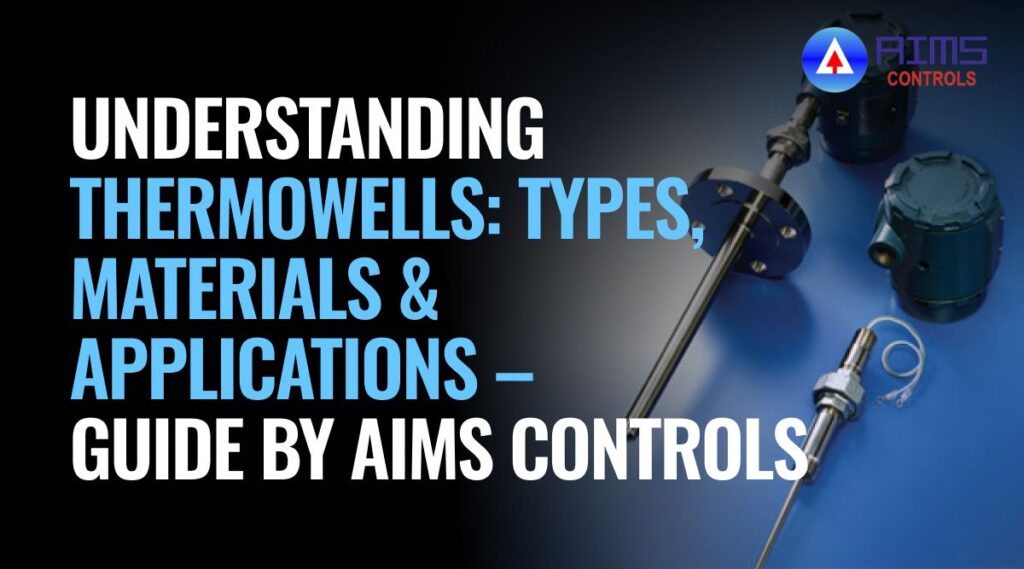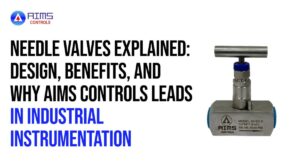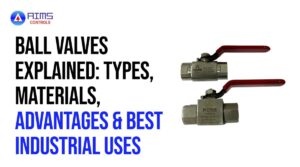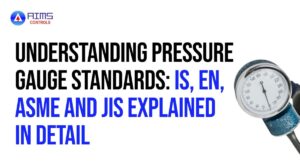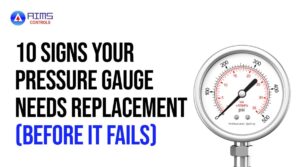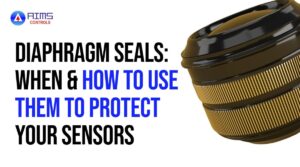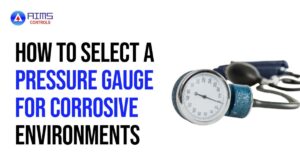In high-performance industrial systems, understanding thermowell types is critical. A thermowell acts as a protective barrier for temperature sensors such as RTDs and thermocouples, ensuring they function reliably even in harsh environments. Whether you’re dealing with high pressure, corrosive materials, or fast-flowing media, the right thermowell type helps extend the life and accuracy of your instruments.
At AIMS Controls, we specialize in manufacturing durable, precisely engineered thermowells that meet the demanding needs of industries across Gujarat, India, and beyond. Our expertise in various thermowell types ensures your temperature-measurement systems remain accurate, safe, and low-maintenance.
What is a Thermowell?
A thermowell is a protective tube that isolates a temperature sensor (like an RTD or thermocouple) from direct contact with process fluids, enabling safe, accurate measurements and easier maintenance in industrial systems.
Common Types of Thermowells
Thermowells are designed in different forms to suit various industrial requirements. Choosing the right type ensures sensor safety, accurate readings, and system durability.
Main Thermowell Types
- Threaded Thermowells
These are screwed into the process line and are ideal for systems where frequent sensor replacement is expected.
Use case: HVAC, food processing.
- Welded Thermowells
Permanently welded into the pipeline, offering a secure seal for high-temperature or high-pressure environments.
Use case: Power plants, oil & gas.
- Flanged Thermowells
Attached using a flange, allowing easy removal while maintaining a strong connection in pressurized systems.
Use case: Petrochemical, chemical processing.
- Socket-Welded Thermowells
Offer robust installation with minimal leakage—often used in continuous operation industries.
Use case: Heavy-duty industrial setups.
At AIMS Controls, we offer all Major Thermowell Types—engineered for durability, precision, and seamless integration into your industrial setup. Whether you’re in pharmaceuticals, oil & gas, or manufacturing, we help you choose the right solution for optimal temperature measurement.
Specialized Thermowell Styles
Straight Thermowells
- Uniform diameter throughout
- Simple design used in low-stress applications
- Common in general-purpose temperature measurement setups
Stepped Thermowells
- Narrow down near the tip to improve thermal response
- Offer faster sensor readings without compromising strength
- Ideal for applications where speed is critical, like pharmaceutical or lab environments
Tapered Thermowells
- Gradually reduce in diameter toward the tip
- Deliver superior strength under high pressure and flow conditions
- Widely used in power generation and petrochemical industries
Van-Stone Thermowells
- Feature a flange-less, slip-in design
- Rely on external flanges to hold them in place
- Great for systems needing easy replacement without welding or threading
Each thermowell style is crafted to meet specific operational demands. AIMS Controls offers precision-engineered thermowells in all these configurations, helping industries in Gujarat and beyond select the right fit for safety, efficiency, and longevity.
Material Choices and Design Standards
Thermowells must withstand harsh process conditions, making material selection critical. At AIMS Controls, we offer thermowells crafted from:
- Stainless Steel (304, 316): Excellent corrosion resistance and widely used in food processing, water treatment, and general industries.
- Inconel: A high-performance alloy ideal for extreme temperature and corrosive environments, such as chemical and offshore applications.
- Exotic Alloys: Tailored for niche industrial demands, offering enhanced strength and chemical resistance.
Each material is selected based on factors like pressure rating, temperature range, fluid compatibility, and long-term durability.
All our thermowells adhere to international design standards and industry codes, ensuring optimal performance and safety. For fully tailored solutions, explore our thermowell customization capabilities.
Application Areas & Selection Checklist
Thermowells play a critical role across several industrial sectors where accurate temperature measurement is essential without direct exposure of the sensor to process media. AIMS Controls serves diverse industries, including:
- Power Plants: For monitoring boiler and turbine temperatures.
- Chemical Processing: Where thermowells resist corrosive media and high pressures.
- Oil & Gas: Ideal for refineries and drilling platforms.
- Food & Beverage: Hygienic applications that require easy sensor removal and cleaning.
- HVAC Systems: Reliable performance in temperature regulation and control.
Checklist for Selecting the Right Thermowell:
- Process Type: Is the medium liquid, gas, or slurry?
- Flow Velocity: Higher velocities demand stronger thermowell profiles like tapered.
- Mounting Style: Choose from threaded, flanged, socket-welded based on system design.
- Sensor Compatibility: RTDs, thermocouples, or other sensors?
- Accuracy & Response Time: Stepped thermowells offer faster thermal response.
Need a custom recommendation? Explore our manufacturing solutions or speak with our experts for guided support.
AIMS Controls Advantage
- Custom-machined thermowells for your exact needs
- Fast prototyping for quick project turnarounds
- Precision engineering for tough industrial conditions
- Trusted quality and client support backed by experience
Explore why industries trust AIMS Controls
Installation & Maintenance Tips
- Ensure proper mounting for sensor accuracy and thermowell longevity
- Perform routine vibration checks to prevent stress fractures
- Schedule periodic inspections for wear or corrosion
- Use threaded or flanged thermowells for easier future replacements
Quick FAQ on Thermowells
What is the purpose of a thermowell?
A thermowell protects temperature sensors from direct contact with process fluids, ensuring accurate readings and easier sensor replacement.
Which thermowell type suits high-pressure systems?
Flanged and tapered thermowells are ideal for high-pressure applications due to their robust sealing and strength.
How do I select the right material for my thermowell?
Base your choice on factors like fluid type, corrosion potential, temperature, and pressure. Stainless steel 316 is a common all-rounder.
How often should thermowells be inspected?
Regular inspections every 6–12 months are recommended, especially in high-stress or corrosive environments.
Conclusion
Thermowells are essential for protecting temperature sensors, ensuring process accuracy, and maintaining safety across demanding industrial environments. From selecting the right type and material to proper installation and inspection, every step matters.
At AIMS Controls, we specialize in precision-crafted thermowells backed by strong engineering capabilities and dedicated support in Gujarat. Whether you’re in power, chemicals, food, or HVAC, we provide the right solution tailored to your specific application.

